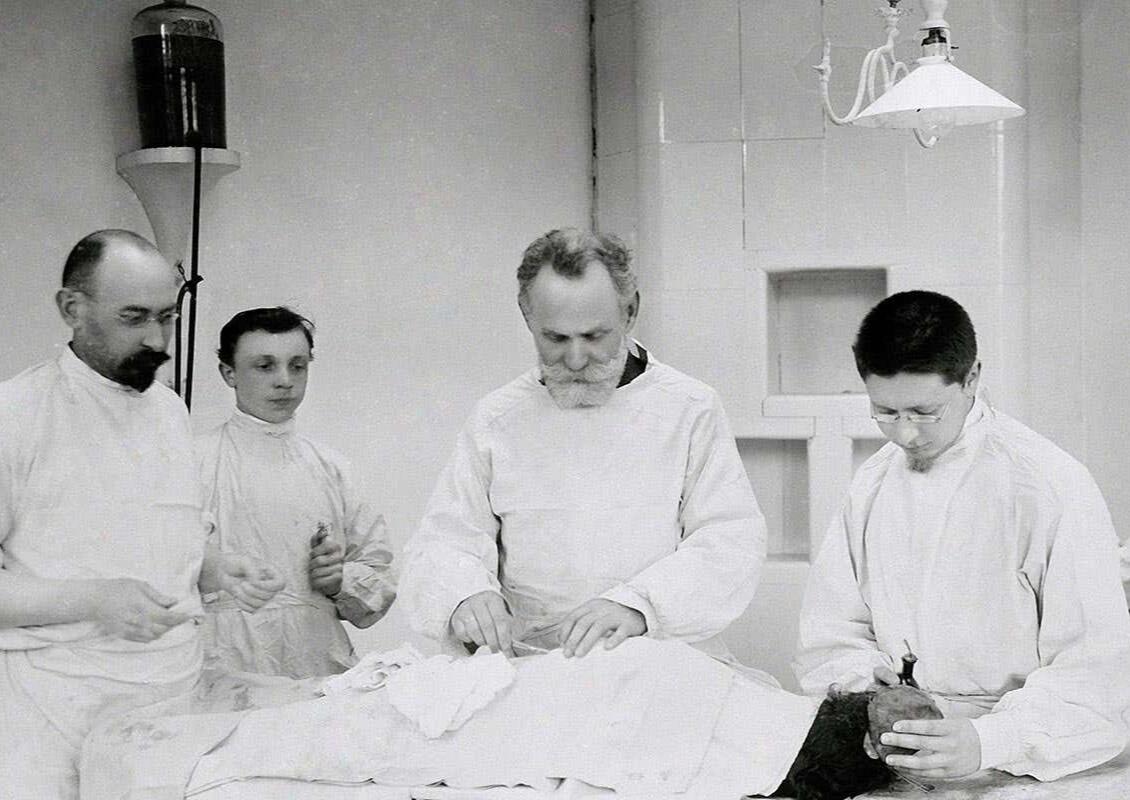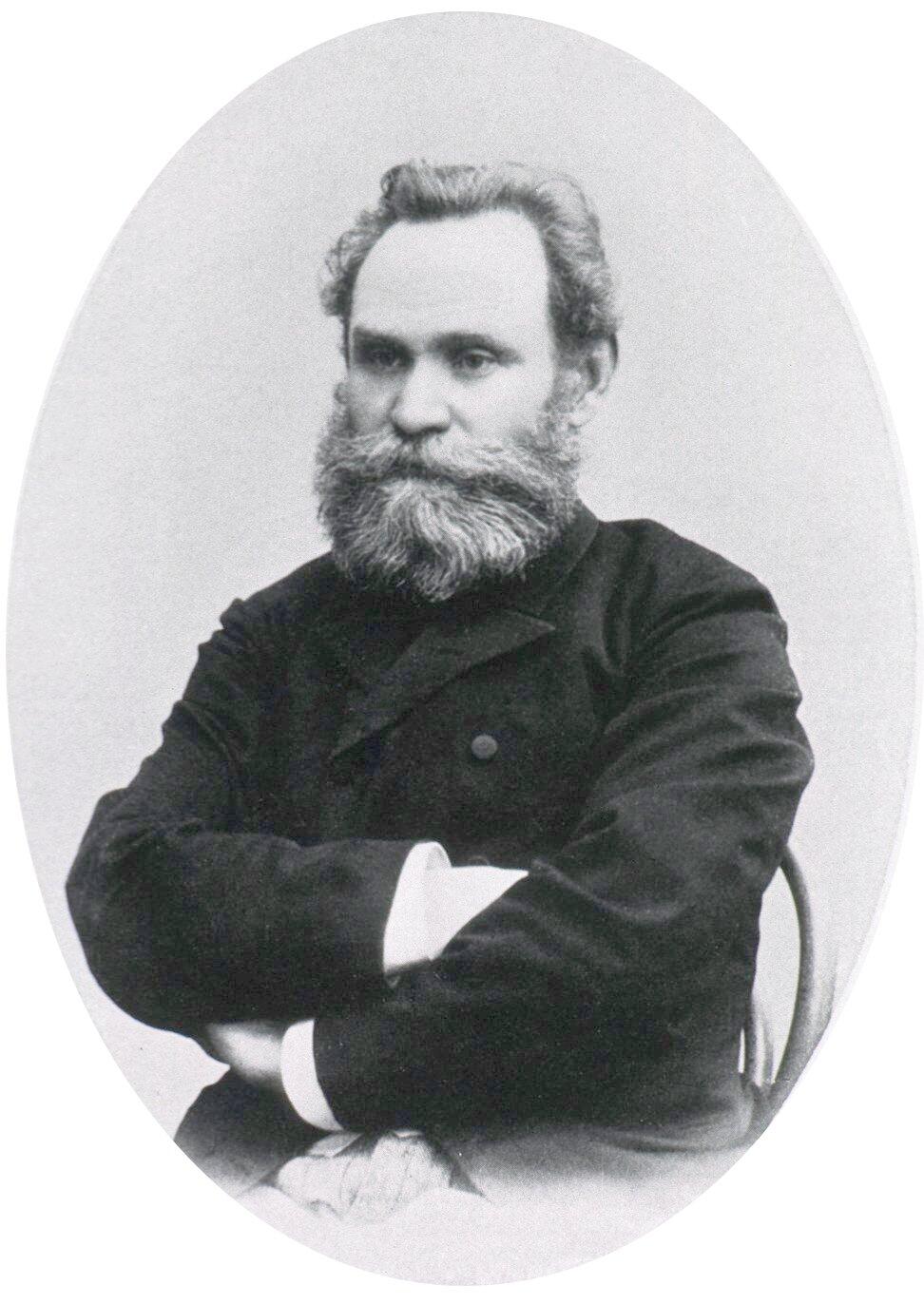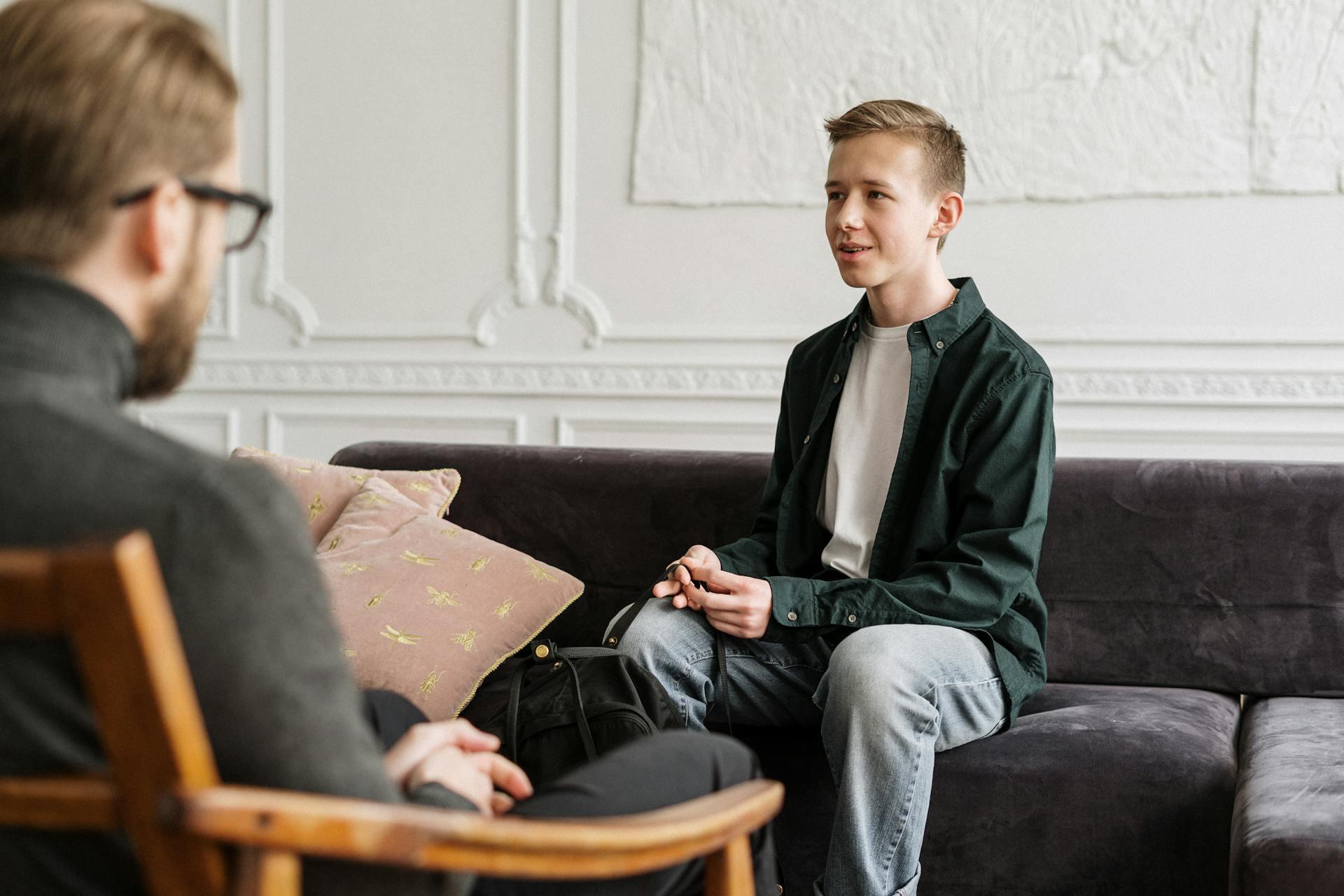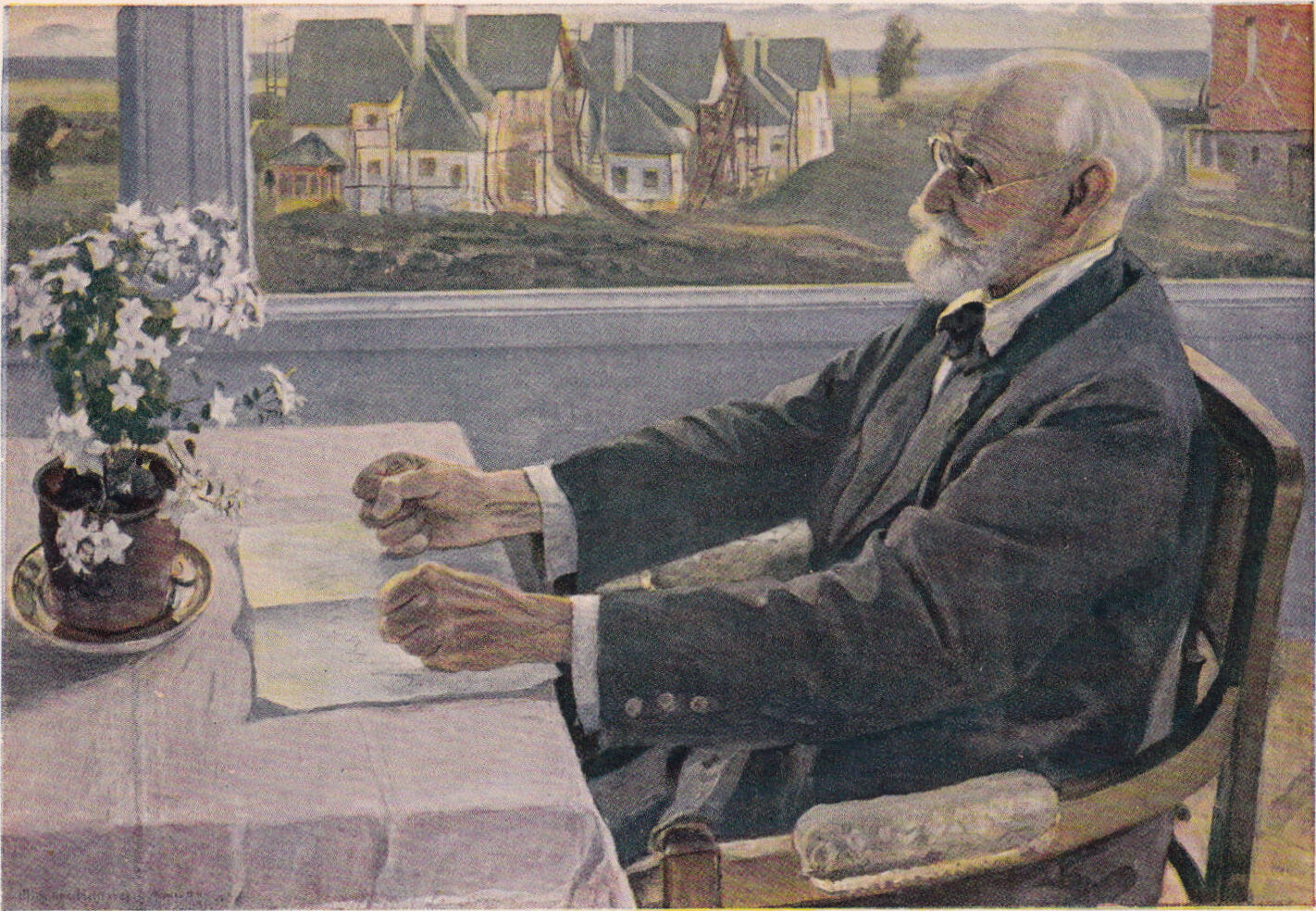Ask someone about Dr Pavlov, and the answer you'll generally get is “isn't he that Russian scientist who made dogs drool?“ While this fact is undeniably true, it's not actually the whole story. Pavlov spent most of his career studying how the body functions, with a large amount of his research centring around the complex connection between the brain and digestion.
Over time, he would go on to become one of Russia's leading psychologists and physiologists after discovering that animals can learn to associate certain sounds with important events, a process now known as classical conditioning.
🧠 Key Points About Ivan Pavlov
- Russian physiologist (1849–1936), best known for his pioneering research into how the brain and body interact.
- Originally studied digestion, discovering that the brain plays a vital role in preparing the body for food.
- Developed the concept of classical conditioning, proving that animals (and humans) can learn to associate signals with specific outcomes.
- Won the Nobel Prize in Physiology or Medicine (1904) for his groundbreaking work on the digestive system.
- His experiments laid the foundation for modern behavioural psychology and influenced fields like education, therapy, and neuroscience.

Before the Experiments: Pavlov’s Path into Science
Don't become a mere recorder of facts, but try to penetrate the mystery of their origin.
Ivan Pavlov
Ivan Pavlov was born in September 1849 in the Russian city of Ryazan, where he grew up in a large religious family led by his father, a local priest. His early years revolved heavily around church life, and it was initially assumed he would go on to pursue work within the church.

However, that plan would begin to change over time as Pavlov developed an interest in understanding how the body works and why humans behave the way they do. In many respects, Ivan Pavlov and Wilhelm Wundt had much in common. They both came from religious families and initially planned to make their living in the church.
Pavlov originally wanted to be a writer before considering the priesthood. He also loved being outdoors, with cycling and rowing being his favourite activities.
Unfortunately, a serious childhood accident delayed his schooling for several years, but when he returned at age eleven, his fascination with scientific ideas only grew. Reading works of influential Russian thinkers like D. I. Pisarev and Ivan Sechenov, the young man began to question traditional religious explanations he had grown up with. In 1870, he made the bold decision to leave the seminary and enrol at the University of St Petersburg to study physics and mathematics - the first major step in his future career as a scientist.
Pavlov's Academic and Professional Career

After completing his natural sciences degree in 1875, Pavlov decided to continue his studies at the Academy of Medical Surgery in St Petersburg. Here, his studies largely focused on the nervous system and its role in regulating the body. It didn’t take long for his steady hands and patient work in the lab to be noticed, and by 1879, he graduated with a gold medal for his achievements. Jean Piaget, the Swiss psychologist, focused on child development and studies of the mind from the outset. By contrast, Pavlov began his professional life intent on understanding how the body works.
In 1883, Pavlov completed a thesis called ”The Centrifugal Nerves of the Heart.” Essentially, his research showed that the heart didn't work entirely on its own, instead sending signals to the brain through specific nerves, making the heartbeat faster or slower depending on the body's needs.
It was the above work that soon helped Pavlov secure respected positions at the Institute of Experimental Medicine and the Military Medical Academy. Many people, including American psychologist B. F. Skinner, found Pavlov's work fascinating. With access to a wide range of modern laboratory equipment and a team of skilled assistants, he was now in the perfect place to pursue the innovative research that would cement his legacy.
1875
Completed a natural sciences degree in St Petersburg
1879
Graduated from the Academy of Medical Surgery with a gold medal
1883
Finished doctoral thesis “The centrifugal nerves of the heart”
1890
Began leading physiological research at the Institute of Experimental Medicine
1895
Appointed Chair of Physiology at the Military Medical Academy

Research on Digestive Physiology
I am convinced that there is nothing accidental in digestion
Ivan Pavlov
Once Pavlov had a fully equipped lab and a team to support his ideas, he quickly moved into a new phase of research focused on how the body digests food. For countless years, doctors believed the stomach worked independently.

However, Pavlov suspected otherwise - instead, he believed the brain played a crucial role in preparing the stomach for what was soon to arrive. To study this properly, he needed a way to observe digestion as it happened.
Pavlov soon developed a small and careful surgical method (later known as the Pavlov Pouch), which allowed him to collect and measure gastric juices from a dog's stomach without negatively impacting its health. For the first time, scientists could observe digestion as it happened in a living animal.
How Pavlov Accidentally Discovered Classical Conditioning

Interestingly, Pavlov's most famous discovery wasn't exactly planned. While busy measuring how dogs digest food one day, he noticed something rather odd. The dogs began to salivate before eating, usually upon hearing a bowl being handled.
Naturally, this raised a question in the curious mans mind: if the body can anticipate food, what else can it learn to expect? To test this, he started introducing a neutral signal (a sound, light or even a simple click) just before food arrived. Over time, the dogs soon learned to connect the signal with the meal - beginning to drool even when no food followed. Pavlov called this new reaction a conditioned reflex because it was learned rather than automatic.
Before Pavlov's experiment, most scientists assumed animals simply reacted to the world on instinct. However, Pavlov proved brains are constantly making connections - nothing's like patterns, predicting outcomes, and adjusting behaviour depending on what's happened in the past.
How Classical Conditioning is Used Today
Classical conditioning is widely used today, with many of our everyday reactions being influenced by things we've learnt to expect without even realising it. Here are some modern-day examples:

Overcoming Fear and Anxiety
Therapists help people gradually replace fear responses with calmer ones, such as during treatment for phobias or panic triggers.
Creating Positive Habits
Repeating certain cues before (like setting out gym clothes the night before) helps the brain link that cue to the routine, making change feel easier and more automatic.
Improving Learning and Behaviours
Teachers often rely on little signals and steady routines to help students settle in and focus better at school or university.
What Awards and Honours Did Pavlov Receive?

As Pavlov's research grew in influence, so did the wider scientific world's appreciation for his work. Over his lifetime, he would go on to receive some of the highest honors a scientist could hope for - the majority of which are listed below.
Viewed through a modern lens, Pavlov's methods seem ethically troubling. Though he did keep his dogs well fed and housed, many believe this was driven by necessity rather than empathy. As with Albert Bandura's Bobo Doll experiment, Pavlov's work today would likely face strong criticism.
Pavlov’s Legacy in Science and Psychology
More than a century after his most famous work, Pavlov’s ideas continue to influence science. He helped establish psychology as a field grounded in evidence and experiment, rather than speculation alone. His belief that behaviour could be measured like any physical process encouraged future researchers to approach the mind with the same scientific discipline used in medicine and biology.
The word 'Pavlovian' has become a part of everyday language and is used to describe automatic reactions that come from past experiences. Very few researchers leave behind a word that enters common speech, and this alone shows how far Pavlov's influence travelled beyond his laboratory.
Summarise with AI:
















